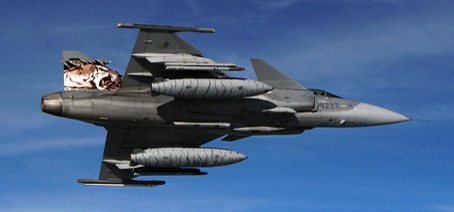One month after the first bombs rained down on Moamer Kadhafi’s forces and with no end in sight, NATO allies cannot agree on how to boost their firepower and break a stalemate in the Libya conflict.
France and Britain, which fired the first shots on March 19, have struggled to convince allies to intensify the air war while NATO commanders are scrambling to obtain even a few more ground-attack jets.
Politically, leaders in Paris, London and the United States vowed in a joint letter last week to keep up the campaign until Kadhafi leaves power, but the resilient strongman has defied his one-time allies, and now Western foes.
“We are going to have to settle in for the long haul. Bombs won’t make him go,” said Nick Witney, European Council on Foreign Relations security expert, adding that it was up to the Libyan people to sort out their own future.
“I’m afraid that frustrating though it is, one has to accept that in military terms it is a stalemate, and it is going to stay that way until Libyans negotiate a solution to it. We just have to be patient,” he said.
Allies have also been at odds over whether to arm the rebels, while Western powers have ruled out sending in ground troops, noting that the UN mandate that authorised the no-fly zone bars any foreign occupation force.
The influential chairman of the French parliament’s foreign affairs committee said France should deploy special forces to guide the air strikes against increasingly elusive targets on the ground.
“The exclusive use of air power, as imposed on us by UN Security Council resolution 1973, has shown its limitations in the face of targets that are mobile and hard to track,” Axel Poniatowski said on Monday.
After Western strikes destroyed a third of Kadhafi’s heavy weapons and grounded his air force, the 42-year veteran leader’s troops hid tanks and artillery in populated areas and started using pick-up trucks to take on rebels in similar vehicles.
“Because Kadhafi forces have been forced to hide, we basically have to hunt them,” a NATO official said, arguing that the alliance has nonetheless “achieved a great deal” because “Kadhafi has not been able to use his military how he wants”.
NATO’s top command says the mission needs as few as eight more warplanes armed with “smart” bombs to avoid civilian casualties, but a two-day meeting of alliance foreign ministers ended Friday without any firm commitments.
Only six out of 28 nations are conducting air strikes. France and Britain carry out the bulk of them, with the rest conducted by Belgium, Canada, Denmark and Norway.
Italy and Spain ruled out conducting bombings, while Canada said it would not consider increasing its contribution until after a May 2 election.
The United States has resisted pressure to return to a frontline role after handing control to NATO half way through the first month, but some analysts say Washington will have to come back if the mission is to prevail.
Without the active military support of the United States, “we are realising that this operation has many weaknesses”, said Alvaro de Vasconcelos, head of the European Union Institute for Security Studies.
“It is even running short of certain munitions,” he said, referring to a Washington Post report that said NATO was faced with a shortage of precision bombs.
The rebels, who control Libya’s east, have criticised the pace of the bombings since NATO took control from the United States on March 31 and have pleaded for help in particular in the western city of Misrata.
The regime has laid siege to the only rebel-held city in the west for nearly two months, and analysts say Libya’s third-largest city may hold the key to the conflict’s resolution.
“It’s a city at the heart of the area controlled by Kadhafi,” Vasconcelos said.
“If the international community can protect Misrata and allow insurgents to control the city, it will spell the end for Kadhafi.”










